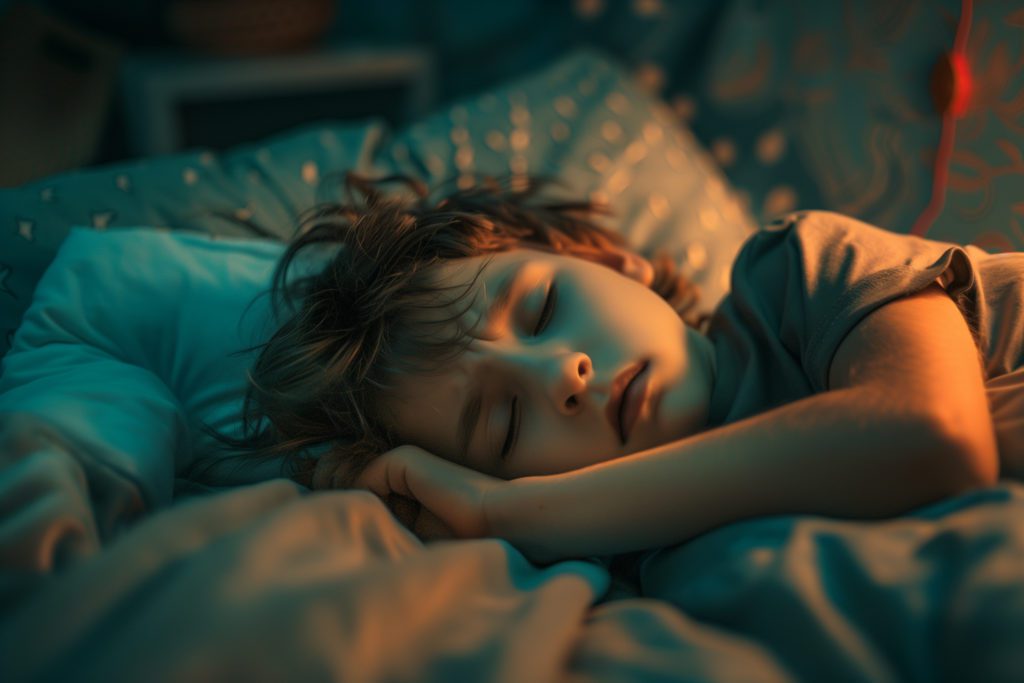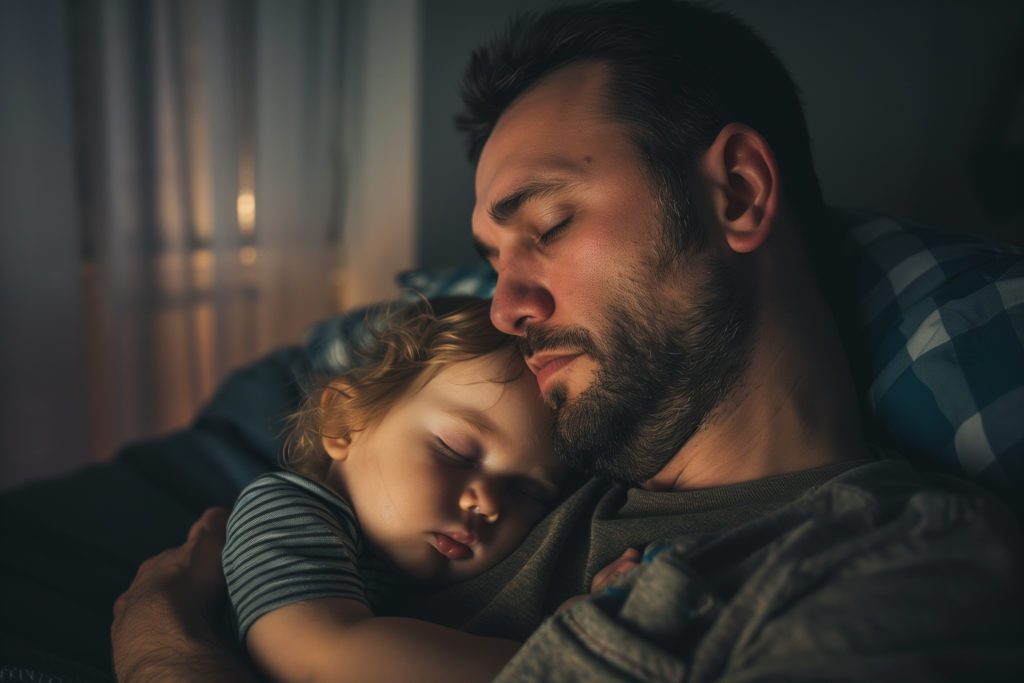
The Impact of Bedwetting on Sleep Quality and Daytime Functioning
Bedwetting is a normal part of childhood, but it can lower sleep quality, leaving your child tired. Learn tips to help your child stop wetting the bed.

Bedwetting is a normal part of childhood, even if your child has no problem using the bathroom during the day. Still, on top of how frustrating it can be to clean up a wet bed in the morning—or even in the middle of the night—have you ever considered how bedwetting may also disrupt your child’s sleep?
Not only can bedwetting, in some cases, occur as the result of a sleep disorder, but it can also wake a child up during the night and make it hard for them to fall back asleep, both factors that result in sleep deprivation and poor quality sleep. Thankfully, once you help your child overcome their bedwetting, the decline in nighttime disruptions and anxiety will allow their sleep to see an immediate improvement.
What is Bedwetting?
Also known as nocturnal enuresis, bedwetting is when a child over five years of age involuntarily urinates during their sleep. It’s not an uncommon phenomenon, and it affects around five million children in the United States alone. Sometimes, bedwetting can persist, with 5 to 10% of all seven-year-olds experiencing bedwetting.
Causes of Bedwetting
In most cases of bedwetting, there is no underlying cause besides it being a part of childhood. However, the following may make bedwetting more likely:
- Eating or drinking diuretics (e.g., coffee and tea), which cause the body to produce more urine
- Drinking too close to bedtime
- Having anxiety: research shows that children who wet the bed are significantly more likely to have anxiety.
- Having a urinary tract infection (UTI)
- Being constipated
- Sleep apnea. This sleep disorder can produce the hormone atrial natriuretic peptide (ANP), which causes the kidneys to produce more urine during sleep.
- Being a “deep sleeper”
- Having ADHD
- Having a family history of bedwetting
How Does Bedwetting Affect Sleep?
Even though bedwetting may be considered a normal part of childhood, it can still affect someone’s sleep.
Nightly Wake-Ups
When a child wets the bed, they may wake up due to the uncomfortable sensation. This can then cause them to be awake for an extended time as they clean up the mess themselves or get a parent or caregiver to help them clean up. Either way, that’s time spent awake when they should be asleep.
Furthermore, after cleaning up the mess, the child may have a hard time going back to sleep, which further lowers how much sleep they get at night.
As expected, the less sleep a child gets at night, the more tired they will be during the next day. Even more, when children wake up during the night, they may get less deep sleep, in particular, which equates to poorer quality sleep.
So, not only can bedwetting cause your child to get less sleep, but it may also cause the sleep that they get to be of poorer quality. Combined, this means that your child will be quite tired the next day.
Bedtime Anxiety
Those who wet the bed may start to experience anxiety at bedtime in anticipation of possible bedwetting. This can occur even when they know that they cannot control what happens while they’re asleep.
This bedtime anxiety can influence sleep in multiple ways. First, anxiety can make it harder for children to fall asleep. This is because anxiety can cause your body temperature to rise and your heart to beat faster, two actions that are in direct opposition to the relaxed state the body should be in to fall asleep.
A higher body temperature and cortisol levels (the stress hormone) can also cause children to wake during the night, which can further diminish their sleep quality.
Unfortunately, not only can bedwetting cause anxiety, but anxiety can also make bedwetting more likely, meaning your child’s fears can come true if they go to bed anxious about bedwetting.
Shame and Embarrassment
As children grow older, they may start to harbor feelings of shame and embarrassment related to their bedwetting. Not only can these feelings eat away at their emotional well-being, but they can also lead to greater sleep difficulties, specifically when attempting to fall asleep.
If your child struggles to sleep at night, the sleepiness and poor mood they have the next day may make these feelings even more severe.
Rashes and Irritation
Children who experience chronic bedwetting may develop rashes and irritation from having urine and wet clothes against their skin overnight. This can cause discomfort that may make falling asleep difficult, limiting how much sleep the child is able to get each night.
When Is Bedwetting A Problem?
With children, it’s important to remember that each matures and hits their developmental milestones at different rates, so the age at which a child stops wetting the bed can also vary.
In most cases, occasional bedwetting in children is nothing to be concerned about—it’s a normal part of childhood—but if parents notice the following issues, it may be a sign of an underlying problem that a doctor should check out:
- Painful urination
- Sudden onset of bedwetting in older children or teenagers
- Daytime incontinence
- Cloudy or discolored urine
- Excessive thirst
- Bowel movement issues (e.g., lack of bowel control or constipation)
- Sleep issues (i.e., being unable to wake)
Tips for Stopping Bedwetting
While bedwetting is a common situation for children, it can still affect their sleep quality, hindering their immune system, growth, school performance, and mood. To help set your child up for daily success, it’s important to prioritize their sleep— if they wet the bed, helping them overcome this hurdle can be a significant help.
The following are some tips you and your family can initiate to help your child overcome bedwetting and sleep solidly, and dryly, through the night.
- Ask if something is wrong. It may seem simple, but asking your child if something is wrong and opening that door for communication can help them overcome bedwetting. Inquire about if anything is making them angry, worried, or sad, and ask them why. If the bedwetting stems from psychological or emotional causes, communicating with your child can help you work with them through their concerns.
- Avoid punishment, and keep your attitude positive. Anxiety related to bedwetting is common in children, which can make bedwetting more common in addition to deteriorating their sleep. Because of this, remember that bedwetting is generally unintentional and should not be treated with punishments, anger, or shame.
- Keep a record. By recording your child’s dry and wet days, you can better see what may be triggering the bedwetting incidents.
- Avoid drinks before bed. If possible, try to keep your child from drinking 1-2 hours before bed. It’s also helpful to pair this with going to the bathroom immediately before going to bed.
It’s important to remember that while bedwetting is a normal part of childhood for many kids, its impact on sleep quality makes it an issue that all parents should give their attention to in a comforting, understanding, and empathetic way.
Your child doesn’t want to wake up with a wet bed just as much as you don’t want to have to clean the mattress each night. Knowing this, work with your child to help them overcome their bedwetting until they wake up after a full night of sleep just as dry as they went to bed.

Written by
Jessica G
Medical writer freelancer who has written hundreds of articles on varying topics. Masters of Engineering degree in Biomedical Engineering.
Download Pillow
Get help
Press & News
Legal
Connect
X (Twitter)
Company
Copyright © Neybox Digital Ltd.



